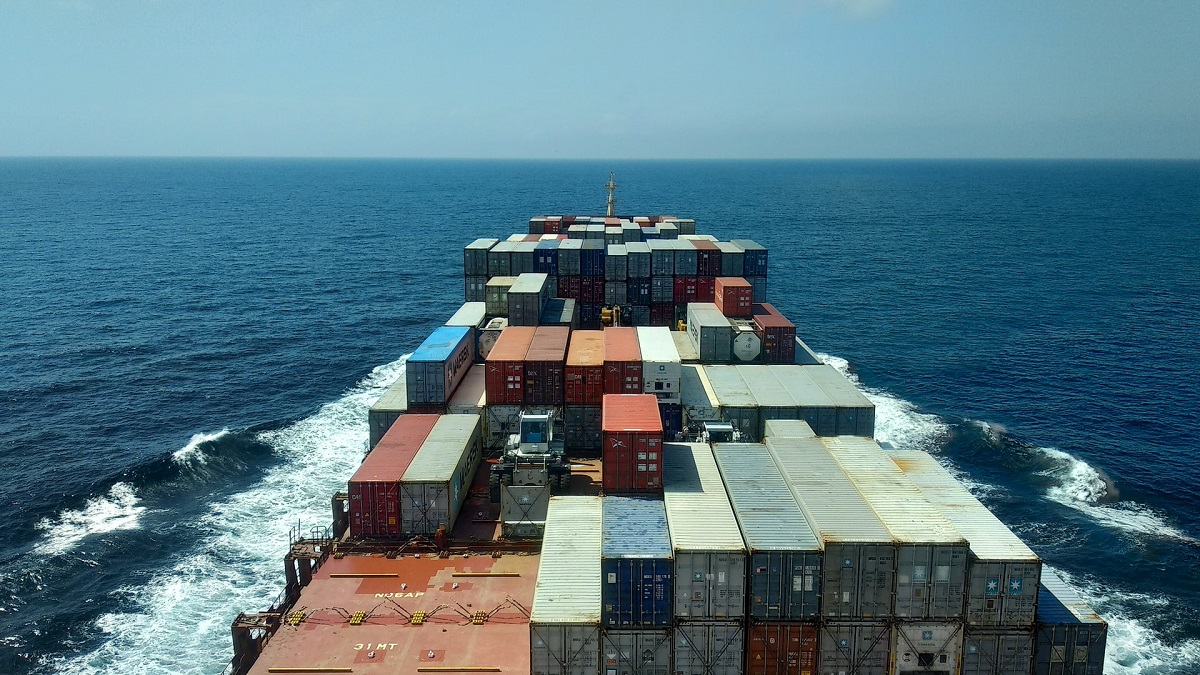This article is from the Disruption at the Ports: Congestion to Container Shortages: A Conversation with FMC Commissioner Rebecca Dye during ISRI2021. Many of the programs available in ISRI2021 will remain available to convention registrants through May 20 on demand. The exhibit hall will remain open during that time as well.
When people ask Commissioner Rebecca Dye for an overview of the Federal Maritime Commission (FMC), she says it’s the Federal Trade Commission on the water, “because we have a law enforcement competition side and a consumer-affairs side.” The FMC uses the same tools as the Justice Department to analyze filed agreements. “You don’t see the give-and-take between our staff and the agreement party,” Dye says.
In this session, Dye, along with Karyn Booth, partner and practice group leader for transportation at Thompson Hine, and Billy Johnson, ISRI’s chief lobbyist, discussed the FMC’s role in responding to ongoing ocean transportation disruptions.
Dye leads the agency responsible for regulating the U.S. international ocean transportation system. In response to ocean shipping disruptions, port congestion, and container shortages, the FMC in 2020 launched multiple investigations. Dye directed these investigations beginning with disruptions at the Los Angeles and Long Beach, Calif., and New York-New Jersey ports, and the container shortages.
Dye discussed the FMC’s Fact Finding 29, International Ocean Transportation Supply Chain Engagement, which identifies operational solutions to COVID-19-related cargo delivery system challenges. In April 2020, the FMC called for the creation of supply chain innovation teams to find ways to provide immediate relief for the U.S. freight-delivery system. “We formed small teams with no more than 12 people; just the business leaders themselves, people inclined to fix the problem,” Dye says. There’s no single link in the supply chain who can fix the problems. Everyone has some responsibility, from the ocean carrier to the truck driver to the importer and the warehouse.
In February, the FMC announced plans to issue demand orders regarding ocean carriers’ and marine terminal operators’ (MTOs) detention and demurrage practices. The information the FMC collects through its demand orders will determine whether ocean carriers and MTOs have violated the “Interpretive Rule on Detention and Demurrage,” which grew out of the fact-finding investigation and became effective May 18, 2020. Those not abiding by the rule could be determined to be violating 46 U.S. Code 41102(c), which establishes an obligation for MTOs, ocean transportation intermediaries, or common carriers to establish, observe, and enforce, just and reasonable practices and regulations related to, or connected with, receiving, handling, storing, or delivering property.
The FMC’s most recent guidance on detention and demurrage, which came out of Fact Finding 28, addresses these challenges. The FMC approached detention and demurrage as a prohibitive act. “There’s good demurrage and bad demurrage,” Dye says. A charge that incentivizes cargo to move promptly from ports and maritime terminals is good, Dye says, in cases where a shipper is holding a container for too long. In contrast, practices imposing demurrage and detention when such charges are incapable of incentivizing cargo movement may not be reasonable. “If you attempt to return a container and you can’t because there’s no room due to congestion, you shouldn’t have to pay,” Dye says.
The FMC chose an interpretive detention and demurrage rule to allow for other ways to provide “just and reasonable” practices. Dye describes a situation where a carrier waved detention and demurrage charges, noting it wouldn’t charge anything until there was a place to return containers. “If you wave the demurrage completely because you’re looking for a place to put containers, that’s reasonable, and there may be other ways,” she says. But Dye notes carriers that have contacted her because they’re unsure if they’re following appropriate practices. Just as there are good actors who are willing to work with customers, there may be others taking advantage of the crisis, Booth notes. Dye stresses that enforcing this prohibitive act requires evidence. “We’re doing what we can to move the ball forward,” Dye says.
The FMC has formal and informal complaint processes. The formal process requires due process to issue orders. The informal process helps facilitate resolutions to disputes without formal orders. “I’m interested in building it up,” Dye says. “We may have some findings from that at the end of the fact-finding investigation.”
When discussing issues at ports, Dye explains the problem is the overwhelming volume of imports. For a marine terminal that’s 80% full, “The land is its only asset,” Dye says, adding there must be enough room to move boxes safely. A terminal that’s fuller than 80% is “paralyzed.” Many port delays are due to labor shortages related to COVID-19 disruptions or union issues. “We’re working on a COVID-19 related approach,” Dye says.
Dye noted she received information during private conferences but the FMC needs documentation about unfair practices because no one has officially filed any. The FMC requires evidence—names of particular carriers. “No law enforcement agency can pursue any legal action without this type of evidence,” Dye says. The FMC is aware shippers are concerned that submitting disputes may result in punitive retaliatory responses from ocean carriers. “It disturbs me and my colleagues,” Dye says. “We’ve discussed it amongst ourselves. We’re going to draw attention to it, but for now, the only way a carrier can check their references is by name.” Booth and Dye recommend importers and exporters document problems and preserve their records to present to the FMC, either formally or informally.













